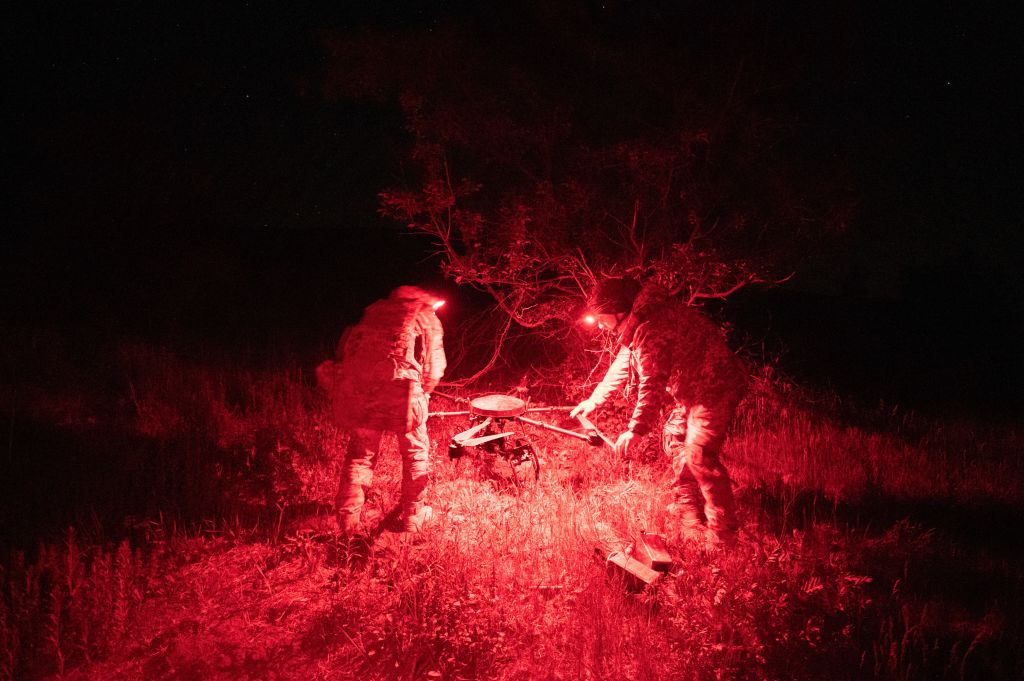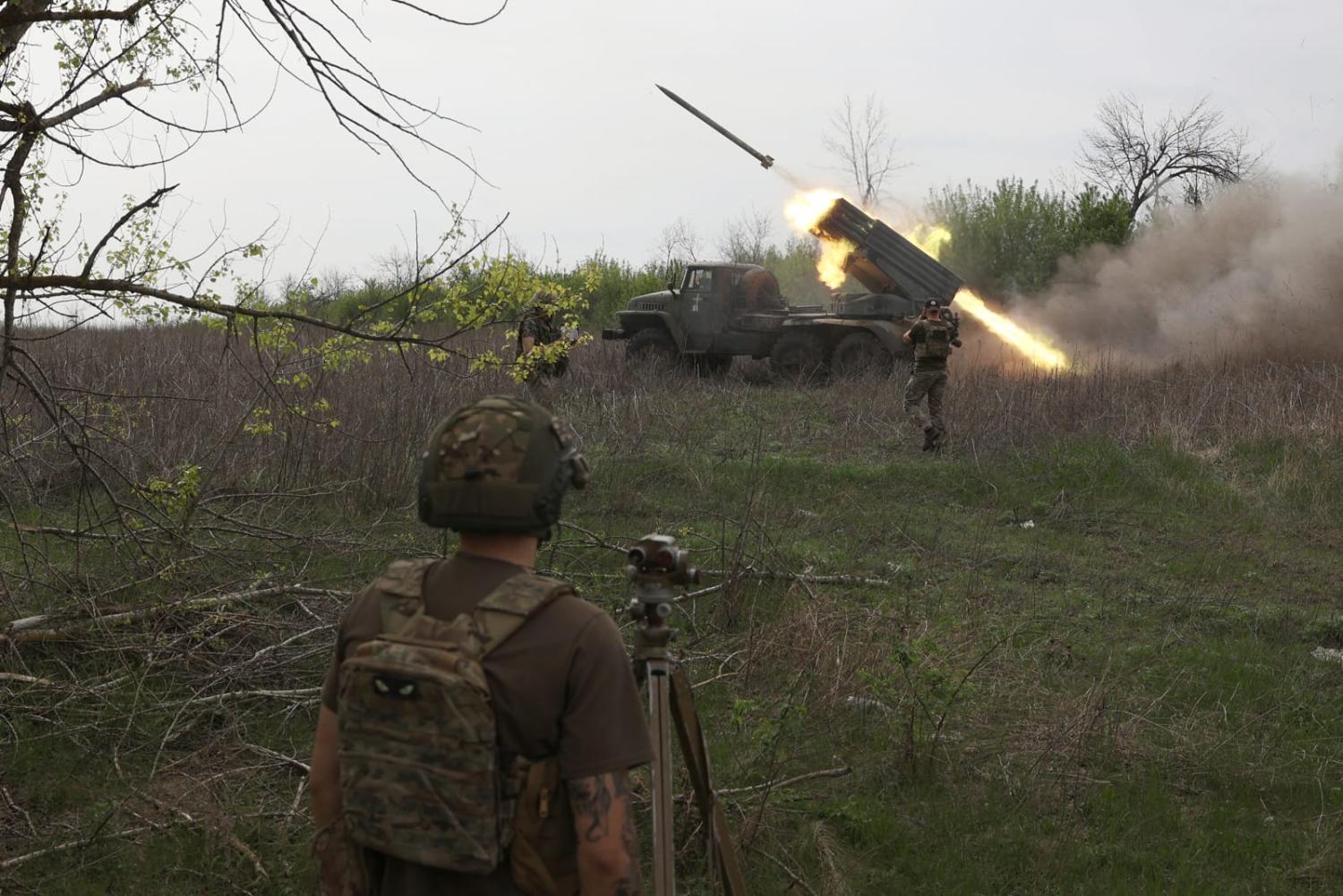“We can repeat” is the slogan used every 9 May when Russians remember the Red Army’s victory in the Second World War. Elsewhere on the continent, Europeans promise “never again”. The difference between the two was on display again this week with massive attacks across Ukraine. That’s why in Kyiv it was welcome news that the United Kingdom is allowing strikes on Russian territory with British-supplied weapons, following the same approach taken by Finland and Latvia.
The no-strings-attached aid is a major step change in Western policy. Ukraine has mounted a sophisticated air campaign against oil refineries and other military targets in Russia. But this has contributed to nausea in most Western capitals where Ukraine’s backers have tacitly forbidden the use of Western hardware. Until last week, despite having British long-range Storm Shadow missiles (as well as French SCALP missiles and more recently American ATACMS), Ukraine hasn’t been able to put them to work inside Russia.
Targeting objects beyond Ukraine’s borders puts a stick in the wheel of Russia’s war machine.
So, after more than two years of full-scale war, why now?
First, Western policymakers have likely acclimatised to the idea from sheer exposure. Ukraine’s cross-border sorties have normalised what for many was once unthinkable. Russia’s own air campaign has made the calculus easier, too. It has battered Ukrainian energy infrastructure and residential areas like that in Kharkiv, Ukraine’s second city. As British Foreign Secretary David Cameron said in Kyiv last week, “just as Russia is striking inside Ukraine, you can quite understand why Ukraine feels the need to make sure it's defending itself”.
Second, it’s a strategic necessity. Targeting objects beyond Ukraine’s borders puts a stick in the wheel of Russia’s war machine. It degrades its capacity to fight and forces the redeployment of assets away from the front lines. For this, Ukraine has a maturing armoury of homegrown drones and a newly upgraded cruise missile. But a menu of Western kit gives its strike complex considerably more heft. With Ukraine dug in ahead of an expected Russian push this summer, this is all the more important.

The green light from the UK is also significant from a long view. It’s an erosion of what wonks call Russia’s “escalation dominance” and its imagined sphere of influence. In other words, the West has long acquiesced to the idea that, in Ukraine, Russia cares more than we do and will go to greater lengths to defend its perceived interests.
This isn’t just a Cold War hangover – the thinking has had a tangible effect on Western policy for decades. Speaking with Barack Obama after Russia’s 2014 invasion of Crimea and eastern Ukraine, The Atlantic summarised the former US president’s Ukraine policy: “Ukraine is a core Russian interest but not an American one, so Russia will always be able to maintain escalatory dominance there”.
True to form, Russia has seen the wobbles in the West’s confidence and pressed where it hurts.
Since the full-scale invasion too, Russia’s manipulation of escalation terror has been remarkably successful. As Lawrence Freedman argued in a recent lecture, “great effort was put into identifying Russian red lines with the presumption that might quickly lead to nuclear use”. Policymakers, he says, started with the worst scenario and worked backwards, a process critics usually describe as self-deterring.
But the decision to turn the screws on cross-border strikes sets a new precedent. It’s part of a transition among Ukraine’s partners to a firmer stance in the region. The delivery of ever more lethal Western weapons is a good illustration. Even better is French President Emmanuel Macron’s musings about deploying European troops to Ukraine. The trend amounts to a slow dismantling of Russia’s “red line” rhetoric and a recognition that Ukraine’s independence is a core interest after all.
This doesn’t mean the end of Western hesitancy in its support for Ukraine. Both the United States and Germany, the two largest guarantors of Ukrainian resistance, are yet to give Ukraine permission to launch. With the US election looming in November, Joe Biden is worried about being misconstrued as the president for war and chaos.
German Chancellor Olaf Scholz, for his part, continues to shiver with every inch that Germany wades deeper into the water with Russia. He has steadfastly refused to supply Kyiv with much-needed Taurus missiles, citing the dangers of escalation and “co-belligerency”. The memories of Germany’s role in the 20th century's horrors mean these fears get more traction than elsewhere. And given the cruise missiles could require targeting support from Germany's armed forces, as France and the UK are believed to provide, the issue is especially sensitive.
True to form, Russia has seen the wobbles in the West’s confidence and pressed where it hurts. After David Cameron’s comments, it responded with sensational foot stamping, announcing nuclear drills and threatening that any British military objects were now fair game. (Never mind that Russia’s wartime suppliers – Iran, North Korea and China – should be included by the same measure.)
For now, Russia still has its hands in its pockets; the United States says there’s been no change in its strategic nuclear posture. Nonetheless, it’s crucial the West does more to seize the initiative in deterring Russia. This means leaning into strategic ambiguity and remembering that there’s more to fear from a Russian victory than defeat. Remember too, that Ukraine is all that’s stopping Russia from “repeating”. Western missiles will help.

